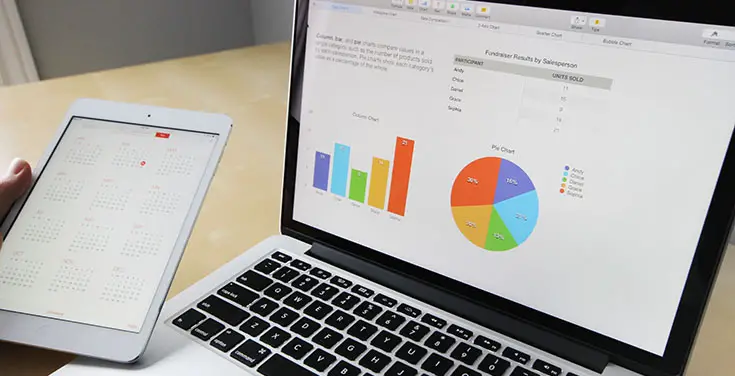Table of Contents
The COVID-19 pandemic has undoubtedly had a considerable impact on most companies worldwide. Economic damage, however, is not the only significant loss: the ability of companies to communicate with their customers has also been compromised. For this reason it is important, today more than ever, to equip oneself with the adequate tools to recover lost opportunities and ensure a communication tool that can work anywhere, even in the case of inaccessible offices, remote working employees, and so on.
In this article we will try to analyze the distinctive features of the main CRM software available on the market, listing their pros and cons. Are we ready? Let's start!
Introduction: What is a CRM?
Before diving into the main topic of the post, let's try to clarify the meaning of Customer Relationship Management in the best possible way and why it is important to have a software tool to manage this fundamental need for any business.
The concept of Customer Relationship Management (often abbreviated to CRM) is closely linked to the concepts of customer base and customer loyalty: in a nutshell, the goal of a CRM is to allow companies to stay in contact with their customers on an ongoing basis, through marketing strategies aimed at improving the relationship with the customer.
In a "market-oriented" company, the market is no longer represented only by the customer, but by the surrounding environment: if a business company wants to increase its position in terms of sales, identity and brand management, it will definitely need to establish lasting relationships in the short and long term not only with individuals (customers), yet also with the society where they live in and the environment surrouding them. Pay high attention to the customer is crucial and decisive. For this reason, marketing management must plan and implement appropriate strategies to manage such an important resource.
CRM goals
Let's try to identify the main tasks that a CRM must perform:
- Customer Retention, i.e. keeping the existing / already attracted customers.
- Increasing the engagement with the most important customers (also called cultivable customers).
- Show loyalty to those customers who have greater relationships with the company (also called prime customers or top customers).
- Transform customers into advocates, i.e. consumers who praise the company by encouraging other people to buy the company's products (or directly engaging them first-hand).
As we can see, these are separate, yet deeply intertwined tasks. This brings us to CRM software platforms, which basically has to deal with all of the above in an organic and interconnected way. For that very reason, choosing the right CRM software for your business can dramatically improve your team's collaboration and productivity, increase sales, and heighten customer satisfaction.
CRM software list
Without further ado, here's a list of the best CRM softwares currently available on the market, together with their distinctive features and starting price.
Zoho CRM
Zoho CRM helps to reach out to prospects at the right moment, engage with them across every channel, and close more deals the smarter way. Furthermore, it allows the administrators to transform routine tasks into contests and watch the operators (salespeople) compete to add the most notes or send the most emails.
Top features
- Email integration for instant overview
- SalesIQ for visitor Tracking and sales intelligence
- Campaigns for email marketing
- Social for Social Media marketing
Pricing
- $15 user/month
Salesforce CRM
Salesforce connects sales to service, marketing, and beyond, giving an accurate view of the entire business flow with comprehensive forecasts. Moreover, the software platform is highly customizable by software developers, assuming your company has an internal IT Team (if that's not the case, you can look for dedicated developers through IT outsourcing in Ukraine or in other European countries where the costs of IT development is more affordable than USA and UK).
Top Features
- Contact management
- Sales collaboration
- Lead management
- Email integration
- Sales forecasting
Pricing
- $25 user/month
HubSpot
HubSpot CRM is part of a comprehensive suite of sales productivity tools: the CRM module makes it easy to organize, track, and grow your pipeline, yet it lacks distinctive features if we compare it with its competitors. However, its UX/UI makes up for that.
Top features
- Manage your pipeline with total visibility
- Log sales activity automatically
- See everything about a lead in one place
Pricing
- €36.80 per month
ZenDesk Sell
Zendesk Sell is a sales force automation software to enhance productivity, processes, and pipeline visibility for sales teams. Moreover, it provides a unique feature called auto-dialer, which will automatically call people on your list right after the previous call ended, increasing the salespeople productivity.
Top features
- Live chat
- Automated outreach
- Activity reporting
- Prospect list building
Pricing
- $93 user/month
Microsoft Dynamics CRM
Last but not least comes Microsoft Dynamics CRM, a fully fledged product that uses MS Azure to bring the digital intelligence into each deal, allowing the administrators to predict customer needs and meet them with the most suited business strategies to build relationships and revenue. This allows salespeople to increase sales productivity and marketing effectiveness through social insights, business intelligence, and campaign management.
Top features
- Customer Opportunity Management
- Reports and sales analytics
- Mobile CRM
- Sales Forecasting
Pricing
- $63 user/month
Conclusions
That's it, at least for the time being: we hope that this post will help other marketing managers to choose the CRM software best suited for their needs.

